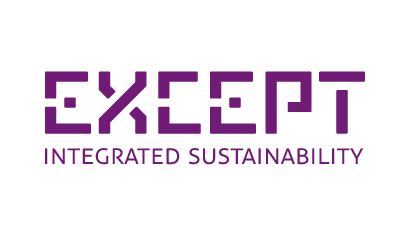Systems Thinking for Sustainability: Drawing Complexity on a Paper
Posted 2 years 5 months ago by Except Integrated Sustainability
Discover how systems mapping powers systems thinking
Systems are groups of interacting, interrelated, and interdependent components that form a complex and unified whole.
Systems mapping allows you to manage the vast amounts of information that confront you when analysing systems, and it’s a key approach to understanding them and being able to improve them.
Building a strong understanding of systems mapping will enable you to chart the elements and relationships that compose any system you’re dealing with, and offer an unconventional insight into how it looks in space, how it behaves in time, and what it affects.
Creating a clear image of that system will allow you to make informed decisions on how to improve its state via sound solutions. The process will also offer an important tool for communication, helping you to collaborate and inform key stakeholders when building more sustainable systems.
Learn how systems mapping aids systems analysis and design
Systems mapping is also a key tool in systems analysis and design. You’ll learn what the different components of a system are, and their relationships with others. This will empower you to begin thinking about how to make them more sustainable. This powerful tool will allow you to organise the wealth of information involved in systems thinking by drawing up stakeholder maps.
Upon completion of this course, you’ll understand the fundamentals you need to start using systems maps to tackle real-life challenges and know how to create stakeholder maps for any project.
This sustainability management course is designed for anyone who would like to understand how systems mapping can help us to build more sustainable systems.
It would be suitable for purpose-driven professionals at public and private organisations.
This sustainability management course is designed for anyone who would like to understand how systems mapping can help us to build more sustainable systems.
It would be suitable for purpose-driven professionals at public and private organisations.
- Identify the main concepts underlying sustainability, and its relevance in our society today.
- Explore basic principles of systems thinking and network theory applied to sustainability.
- Interpret systemic behaviours in society, and how they relate to sustainability transitions.
- Evaluate the way success is defined for sustainable projects
- Perform quick impact scans across different dimensions of sustainability, enlarging your scope of impact.
- Collaborate with sustainability experts and absorb new insight
- Engage in your own project and develop system mapping skills

